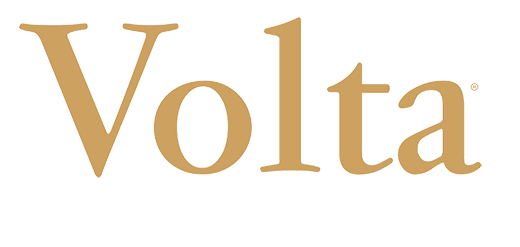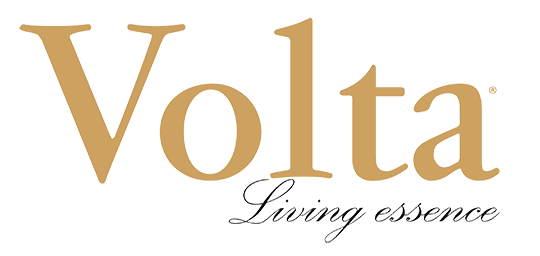Boundaries

Relationships in the workplace are human relationships. A workplace may be set in a different frame, but that doesn’t change the fact that it is a place where everything is a result of human action or interaction, where people simply assume their business identity and role.
Therefore, things that give us a hard time in everyday life, such as setting boundaries, being assertive, and maintaining standards we think are important, continue to trouble us within the workplace, as we coexist and collaborate with other people.
The reason for this is that even as we assume our role as professionals, we cannot be cut off from our human nature, our emotions, and the insecurities and fears that may be formed internally. These are all behaviors we should be exhibiting and actions we should be taking in order to be satisfied by our collaborations and the emerging outcomes.
However, there is an internal battle, where this process clashes with the belief that the person who sets their boundaries, who clearly defines their expectations and their desires, who negotiates and asserts, is egocentric, cruel, or a plain bad person.
Many high-ranking executives, and many entrepreneurs, carry these kinds of beliefs regarding the definition of what a “good person” is and make the erroneous assumption that a good person does not express their desires (or if they do, they do it quietly), they do not inform other people what parts of their collaboration or work they are not satisfied with, they do not set boundaries, and they do not set rules outlining the obligations and rights of both people.
As a result, managers or business owners, usually hide behind hopes and utopian expectations, that the members of their team, or their employees in general, will automatically respect all of the above, assuming that what is ethical and what is right is self-explanatory.
Of course, there is always the best-case scenario, where people are fully aware that freedom should be utilized and not be taken advantage of, and proven by exhibiting self-demarcated and correct behavior. These employees and team members, make their employers’ and managers’ life easy. Employers or managers never feel the need to have any “difficult” conversation with these people about boundaries and respect, and they will never even have to wish they had the courage to have that kind of conversation.
But there’s another type of people, who believe they do not have to take into consideration anything that has not been expressly mentioned. They focus, therefore, on their own rights, which they fervently preserve, but they are very flexible regarding their obligations and respecting other people’s boundaries (their managers’, or in this case, their employers’), which they encroach on, often bringing them in a difficult position. When that is the case, the employer’s or manager’s negative emotions accumulate over time, until they reach breaking point. When boundaries have been stepped on too much, a necessary, explosive conflict occurs, which most often happens in a clumsy and unprofessional way.
If, by reading the above, you have placed yourself in the position of the employer or the manager that has a hard time setting boundaries, because you do not wish to be considered “bad guys” and, as a result, have been suffering the consequences for years, then it is high time you threw away this misguided belief. Speak up! Set your limits! It will benefit the members of your team, the outcomes of your employees’ work, your relationships, as well as yourself, as a good leader is a person who can place boundaries, and not a people pleaser!
What's Your Reaction?
Η Βαλεντίνα Κόρδη είναι πιστοποιημένη Mindset & High-Performance Coach Στελεχών, Ομάδων και Επιχειρηματιών, Διεθνής Ομιλήτρια Παρακίνησης, TEDx speaker και Συγγραφέας. Εδώ και 10 χρόνια έχει ιδρύσει την δική της εταιρεία, ως Executive & Business Coach, έχοντας προπονήσει αυτά τα χρόνια, επιχειρηματίες και υψηλόβαθμα στελέχη επιχειρήσεων όπως της Microsoft, Novartis, Boehringer Ingelheim, Coca-Cola, Biomarin Pharmaceutics, Nissan, AstraZeneca, Unilever, κτλ. παγκοσμίως να πετύχουν τους επαγγελματικούς και εταιρικούς τους στόχους, να αναπτύξουν ηγετικές δεξιότητες και να διαχειριστούν αποδοτικά αλλαγές αναπτύσσοντας την κατάλληλη κουλτούρα, νοοτροπία και συμπεριφορές, μετά από 15ετή εμπειρία ως στέλεχος η ίδια σε πολυεθνικές εταιρείες. Το βιβλίο της «Η επιτυχία είναι παιχνίδι του μυαλού» έχει γίνει best seller και έχει μεταφραστεί επίσης στην αγγλική γλώσσα. Σπούδασε Διοίκηση Επιχειρήσεων Newport University της Καλιφόρνια, κατέχει μεταπτυχιακό τίτλο στη Διοίκηση Ανθρωπίνων Πόρων από το City Unity College και είναι Υποψήφια Διδάκτωρ Conscious Business Ethics του University of Sedona. Επιπλέον, σπούδασε Success Conversion Coaching στο Express Coaching School του Καναδά και Strategic Intervention Coaching στη σχολή Robbins-Madanes School του Τόνι Ρόμπινς, στις ΗΠΑ. Είναι μέλος του Harvard Business Review Advisory Council, του ICF καθώς και του Institute of Coaching McLean/Harvard Medical School. To 2020, η ICAP Group την συμπεριέλαβε στην λίστα των Leading Women in Business στην Ελλάδα, , ενώ πρόσφατα παρέλαβε το βραβείο International Women of Courage 2021 από τον οργανισμό International Human Rights Advisory Council, μέλος του United Nations Global Compact (τηςμεγαλύτερης παγκόσμιας πρωτοβουλίας Εταιρικής Βιωσιμότητας πουδημιουργήθηκε το 2000 από τα Ηνωμένα Έθνη), το οποίο είναι αφιερωμένο στην Μητέρα Τερέζα. Website: http://www.valentinakordi.com LinkedIn: www.linkedin.com/in/valentinakordi




